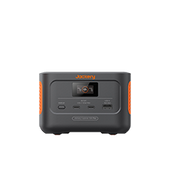There is a special kind of freedom in knowing you can power your workshop anywhere. DIY enthusiasts can relate to this claim, those who spend hours holed up in their garages, garden sheds, and remote cabins. It is always freeing to be able to step away from the grid and do your work comfortably, knowing that a power outage will not impact your productivity. Some of your best work might even come about when you aren’t tethered to a single outlet!
Whether you are building custom furniture in a remote cabin, welding sculptures in your backyard shed, or setting up a mobile workshop in your van, the right off-grid solar inverter or a small generator can transform any space into a fully functional workspace. Here is a full guide to how you can set up your DIY workshop anywhere with off-grid solar inverters!
Why DIYers Are Going Off-Grid?
The first thing that will come to mind is the question: Why are DIYers interested in going off-grid? This is due to several reasons, which include:
Breaking Free of Limitations:
One of the biggest motivators of DIYers going off-grid is the desire to break free from common DIY workspace limitations. Traditional workspaces are tied to the grid and come with several frustrations. One of the first concerns is finding a location with existing electrical outlets that you can plug your devices into. If your location is far from other power outlets, it can be hard to set up shop.
Plus, if your workshop is close to your home or nearby residences, you may face penalties for making too much noise. Workspaces can get noisy, so it’s much more convenient to have some flexibility in where you can run your operation.
Finally, you also have to consider the need for running electrical lines. Even installing a basic electrical system and maintaining it over the years can lead to a heavy dent in your bank account. So, the time you need to spend on creative work is instead lost on timing, electricity rates and trying to minimise your costs.
The Benefits
Now we look at the benefits of going off-grid. Making a switch to off-grid solar inverters will open a new world of possibilities for you. For one, you can build your workspace just about anywhere you prefer. You can even set up temporary workshops in your driveway or create a small shop on off-grid land. Not only is this flexible and convenient, but it will also allow you to save on electricity bills. Backyard woodworking sheds, remote welding stations, and mobile workshops are all common examples of off-grid workspaces.
Since you won't be paying for electricity and will be pretty much self-sufficient, no more money going down the drain, plus, since you won't be relying on the grid, you no longer have to worry about losing electricity suddenly. Instead, you have a reliable backup at hand that will always help you. This even works if you have a hybrid system, where you are partially supported by the grid and also rely on off-grid solar inverters. In such cases, off-grid solar inverters can step in when your power runs out.
Emerging Trends
We also must factor in emerging trends. The off-grid DIY movement is gaining traction and has been doing so over the years. Remote work has already been popular for quite some time. And areas such as construction sites, mining sites, and remote exploration roles already make use of solar power to stay connected.
With the emergence of compact and portable off-grid solar inverters, these industries are now easier to work in. No more need for bulky and complicated setups and no need to call a qualified electrical engineer. Instead, you can set up your workspace anywhere you want with these plug-and-play solutions. You don't even need any experience to set them up! Even social media has built a tight-knit community where you can find tips and tricks for setting up your portable solar setups and working independently away from the grid.
Choosing the Right Off-Grid Solar Inverter for Your Workshop
If you are interested in setting up your workshop without needing any grid connection, you need to do your research. Getting the right off-grid solar inverter is key. Not only do you need to weigh your working style and specific needs, but you also need to evaluate several factors, which we will be discussing below:
Key Factors to Consider:
Here are some things to consider when shopping for off-grid solar inverters.
Continuous vs. Surge Power
The first thing to consider is your power requirements, which will form the foundation of sizing up the type of setup you need. In terms of power, consider continuous versus surge power. Continuous power refers to how much sustained wattage appliances will demand while in use. On the other hand, surge power is the momentary, higher wattage that the appliance will draw when it is switched on. Think of it as an extra kick it demands to get running.
Many tools, such as heavy-duty equipment, table saws, drills and welders, etc., require significantly more power when they are starting up as opposed to during normal operations. This is why you need to ensure your solar inverter has sufficient power output to support your devices, often 3x to 5x their running power capacity.
Pure Sine Wave Inverters for Sensitive Electronics
Next comes the concept of pure sine wave output. You might be familiar with the concept of an inverter, which is a necessary part of your off-grid solar power setup. An inverter will convert direct current to alternating current, which is required as input for any devices. In other words, your devices cannot run on DC input.
Moreover, the inverter should be capable of delivering a pure sine wave. This is a form of power that is smooth and has a stable waveform, which will ensure that your sensitive tools and equipment do not get damaged or malfunction. Electronics such as audio gear, computers and precision tools need such input.
Battery Compatibility and Capacity for Longer Work Sessions
The next thing to consider is whether the battery is compatible with your devices. In other words, you want to ensure you have the right battery capacity to support all your tools and equipment. Additionally, you want to calculate how long your work hours will typically be so you can continue working without disruptions. For instance, powering several heavy-duty devices will require larger off-grid solar inverters (upward of 12kWh). But if you only want to power small tools, smaller 1500 to 2000 Wh off-grid solar inverters will be enough.
Safety Features: Circuit Breakers, Overload Protection
Finally, you want to consider the safety features of the off-grid solar inverter. Safety features such as circuit breakers, ground fault protection and overload shutdown are vital to prevent damage to your devices when malfunctions occur. Overcurrent, short circuiting and overheating are all common electrical concerns that DIYers share. That is why reliable and robust off-grid solar inverters are particularly designed to ensure that protection systems are in place. These systems are fully automated, so at the first sign of trouble, they shut down.
Practical Tips
Here are some practical tips that will allow you to ensure optimal performance of your off-grid solar inverter. For starters, you should ensure that off-grid solar inverters are positioned in a sheltered area, shaded away from direct sunlight. This will prevent excessive buildup of heat, particularly in the summer or during busy workshop days. Additionally, you should monitor your power consumption to ensure that your tools are not drawing too much energy from your battery at once.
You should also be smart about which devices you are plugging in simultaneously, so your system is not overpowered. For this, the best approach is to calculate the total power requirements of your tools and leave a margin. Purchase a solar inverter based on that margin.
When choosing your device, try to opt for DIY-friendly setups such as plug-and-play systems, which don't require any complex installations and can be set up just about anywhere you like. Such systems are not only easy to use but are cost-effective and manageable, too. There is always a degree of risk involved with electronics, but with built-in safety features, you can add a safety net around your workspace.

Creative Workshop Ideas for Off-Grid DIYers
Now you might be wondering where you could possibly set up your workshop. Luckily, there are several possible setups you can invest in. Here are some examples of popular workshop types for off-grid DIYers.
Backyard Sheds or Garden Workshops
If you have an empty shed in your backyard, you can quickly convert it into a workspace with the installation of off-grid solar inverters. These sheds give you ample space to set up your devices and get to work with them. Additionally, since they are close to your home, you can always choose to bring in an electrical outlet in the future if you desire.
Plus, with this setup, you can work late into the evenings without affecting household operations. During colder months, consider adding off-grid heating solutions to keep your workspace comfortable year-round.
Remote Cabins or Tiny Homes
The second option is to set up your workspace in a remote cabin or a tiny home. For example, if you have a family cabin off-grid, you can bring your solar inverter and select tools on site to build a makeshift workshop. Getting the basics pinned down is necessary, and then you can expand further down the road. The tiny house movement, in fact, has inspired several off-grid workshop designs that allow you to make the most use of small spaces. Many of these setups incorporate an off-grid heater as well. And when powered with solar generators, you have a fully eco-friendly solution at hand. Individuals who are cautious of their carbon footprint can definitely explore this option.
Mobile Workshops in Vehicles or Trailers
Finally, you have the option of creating a vehicle-based workshop. In other words, you can create a mobile workshop within your vehicles or trailers. This is useful for individuals who need to move around a lot as part of their DIY work. For example, woodworkers may need to gather quality wood and are therefore on the road every now and then. Complete with solar charging systems, it is powerful enough to ensure you can continue working even as you explore remote locations.

Jackery For Your Home Workspace
If you are looking for good-quality off-grid solar inverters that can power all your essential devices and help you quickly set up an off-grid workshop, check out Jackery's offerings. At Jackery, we pride ourselves on being one of the leading providers of clean energy solutions across the country. Our solar solutions are particularly designed to help DIYers such as yourself get the power you need, wherever and whenever you need it!
In case you want to experiment with establishing an off-grid workshop, begin with the Jackery Solar Generator 2000 v2.
The Jackery Solar Generator 2000 v2
The Jackery Solar Generator 2000 v2 includes a portable power station and proprietary SolarSaga solar panels. It carries just the right battery capacity necessary for any DIY workshop, around 2042-watt hours. Furthermore, it is incredibly lightweight and easy to set up, so you can move it around or set it up wherever you require. If you want to set up a hybrid system, this device is also pretty useful since it can be recharged using multiple charging modes. You can recharge it using the wall outlet or solar panel, meaning you can convert this into a backup power solution. The key here is to find a combination that works for you!
We have already spoken about how your device must have safety features. In this scenario, the Jackery Solar Generator 2000 v2 proves to be quite useful. Not only does it have a long-lasting LiFePO4 battery, but it also comes with a Built-In ChargeShield, which prevents overcharging and protects your battery while it is in use. With 62 layers of protection, it ensures that your device continues operating error-free!
Tips for Maximising Your Off-Grid Workshop
Here are some additional tips we offer to help you maximise your off-grid workshop capacity and make the most of what you have:
§ Energy management: Avoid running multiple high-power tools simultaneously on off-grid solar inverters, as this can quickly drain batteries and potentially overload the system. Instead, use power-hungry tools individually.
§ Combine multiple energy sources: Mixing multiple energy sources will allow you to make the most of your workshop capabilities. For example, you should have battery storage ready to work as a backup and include solar panels for primary charging of your devices.
§ Safety tips: Again, proper grounding, appropriate ventilation, and fire prevention are key to ensuring your battery continues to work without fail and enhances its lifespan.
§ Maintenance advice for batteries and inverters: Finally, do not forget to invest in maintenance of your batteries and inverters, which is key to maintaining a long lifespan.
Final Thoughts
Transitioning to an off-grid workshop can be a wonderful step forward for DIYers. However, it entirely depends on the quality of the off-grid power solutions you end up opting for. The freedom to work anywhere, independent from the grid, and reduce your electricity bills are all benefits you can enjoy with the right solar inverter. This is why we recommend Jackery, where we provide professional camping generators and off-grid solar inverters that are technically proven and tested for professional quality work. They are ideal for remote workshops and can be used just about anywhere!






























































































